Photo Gallery: Displaced Children Survive Scavenging On Borno Rubbish Dumps
Children who live in displacement camps and settlements scattered across Borno State, northeast Nigeria, are surviving by scavenging on rubbish dumps, searching for pieces of recyclable metal they can sell.
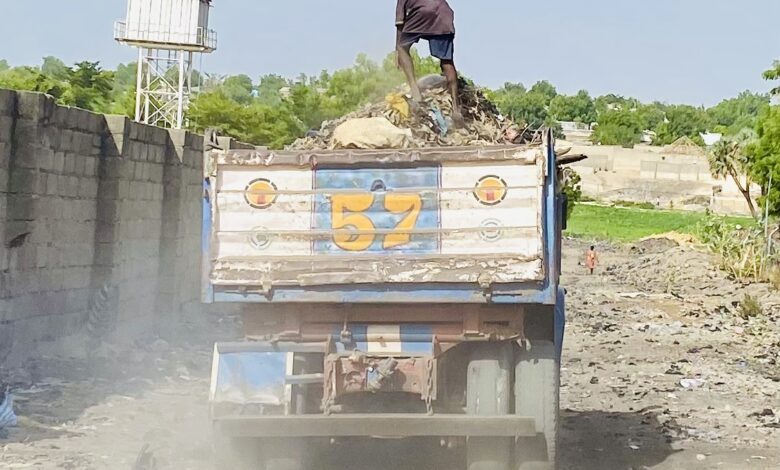
In the early morning hours as the sun starts to rob the darkness of the dusk, young boys emerge from the corners of the recovering city of Maiduguri from IDP camps and settlements with determination etched on their bony faces they venture into the dump sites scattered in the town. With Sacks slung over their shoulders, they carry sticks, to which a speaker magnet is securely tied. This makeshift tool becomes their most useful ally in the relentless search for any object magnet can attract. To the young boys, every day is a struggle for survival.
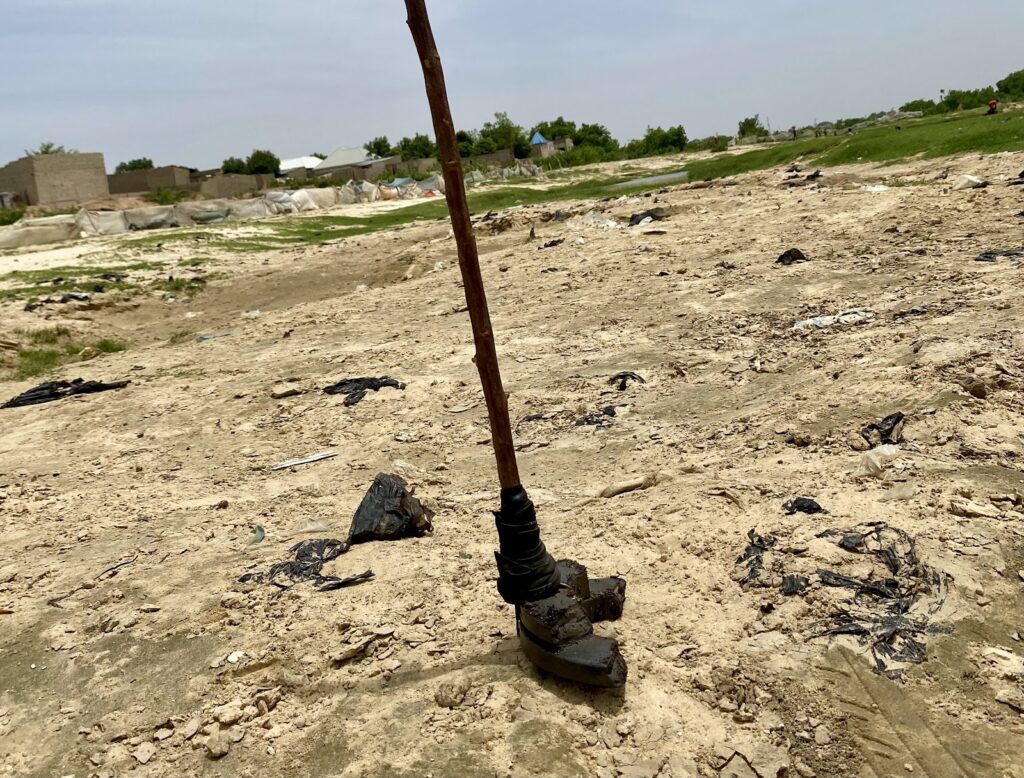
12-year-old Ibrahim Ali returns with some scrap of metal from a day-long exploration. He said, “I always look for metal scraps that I can sell to support my family,” Ibrahim said in a soft voice. “On a good day, I can find 3 to 4 kilos of metal that I sell for ₦400 to ₦500 (around $1). But on normal days I get pieces that I can sell for ₦150 (around 50 cents). Sometimes I may end up without getting any scraps worth selling.”
For Ibrahim is his family, and for some of the children is their stomachs. These particular sets of kids with no traceable family are exposed to more danger as they have no families to return to at the end of their relentless search.
Abba Mallam who trades in buying scrap metals commented on how the children are regularly found guilty of stealing metallic objects that are loosely guarded and are often beaten mercilessly exposing them to more danger.

The community head of Modu Sulumri in Maiduguri, Bulama Modu, expresses deep concern and distress over the sight of children scavenging in the dumpsites. He tells of a recent incident where a 12-year-old boy suffered a severe injury caused by broken glass on the dumpsite. Bulama Modu links the alarming number of children engaged in scavenging activities within his community to the absence of accessible schools in the area.
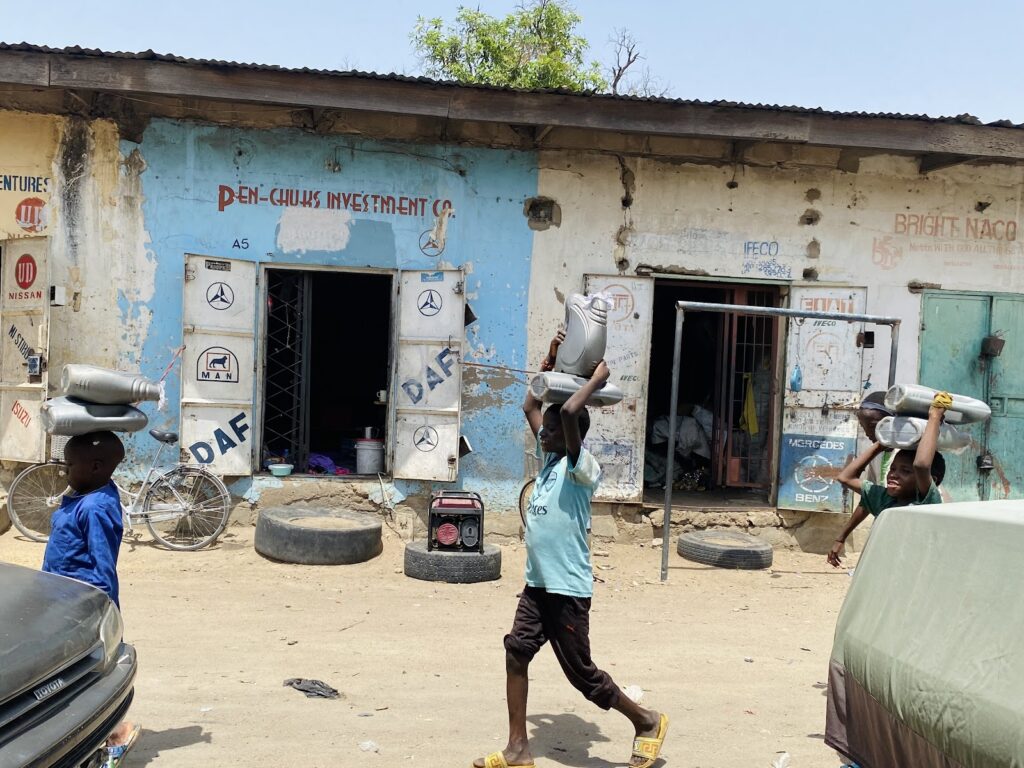
A shopkeeper at Tashan Bama Market in Maiduguri, Suleiman Hassan, expresses his concerns regarding the distressing situation involving children who sleep under the awnings of shops at night. These young individuals, as per the shopkeeper’s account, loiter around the market premises, patiently waiting for the shops to close around 10:30 PM, granting them access to what they consider their sleeping quarters.
“Shopkeepers often accuse them of theft, further exacerbating the already challenging circumstances these children face. Just recently, a particularly disturbing incident occurred when a young boy was subjected to physical violence by a vegetable seller, who accused him of consuming his fruits. In response, the boy shared his side of the story, asserting that he is not the only one compelled to search for food when hunger keeps him awake at night.”
“The absence of accessible schools in the area only perpetuates the cycle of poverty and deprives these children of their right to an education, leaving them with no hope for a better future,” said Bulama Modu a resident of Dala community in Maiduguri, Borno state.
Bulama Kaya, a displaced person from Kaya community in Konduga, spoke to HumAngle about his plight. “I can’t feed my children and take them to school, since there is no community school where I live, in the absence of that my children follow dumpsites picking metals and soda cans for the whole day.”
Ibrahim and millions in the region have been displaced due to the insurgency. The situation is especially harrowing for children who have been forced to leave their homes and live in camps or settlements with no access to education, adequate food, water, and shelter. Children in IDP camps have been exposed to a life of hardship, uncertainty, and danger.
The plight of these vulnerable displaced children surviving on dumpsites in Borno is heartbreaking. These children, who should be in school, playing with their peers, or learning new skills, are forced to collect scraps of metal around the city.
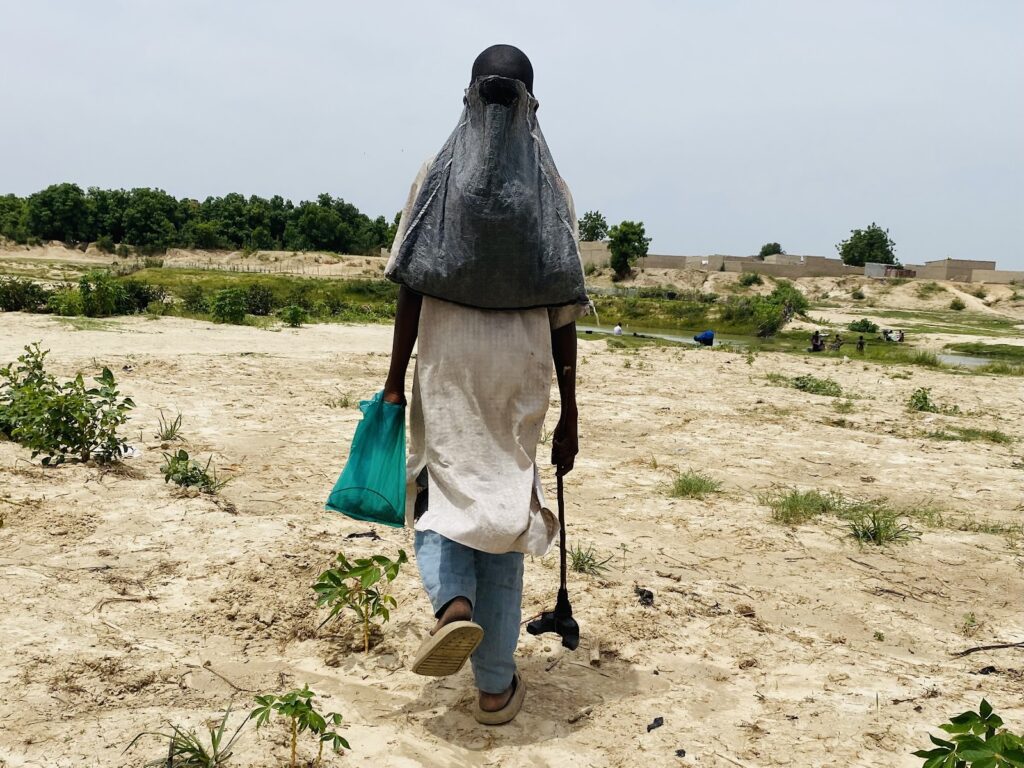
The conflict in northeast Nigeria has led to the displacement of millions of people, leaving both adults and children homeless and without necessities such as food, shelter, and education. Children in IDP camps are affected the most, as the parents, who are primarily farmers, can’t access their farmland and some had to rely on their children’s scavenging to provide for their families.
Due to the inability of their parents to provide necessities like education and food, some children are not displaced but find themselves compelled to undertake such endeavours. This situation is a direct result of the ongoing insurgency in Borno state.
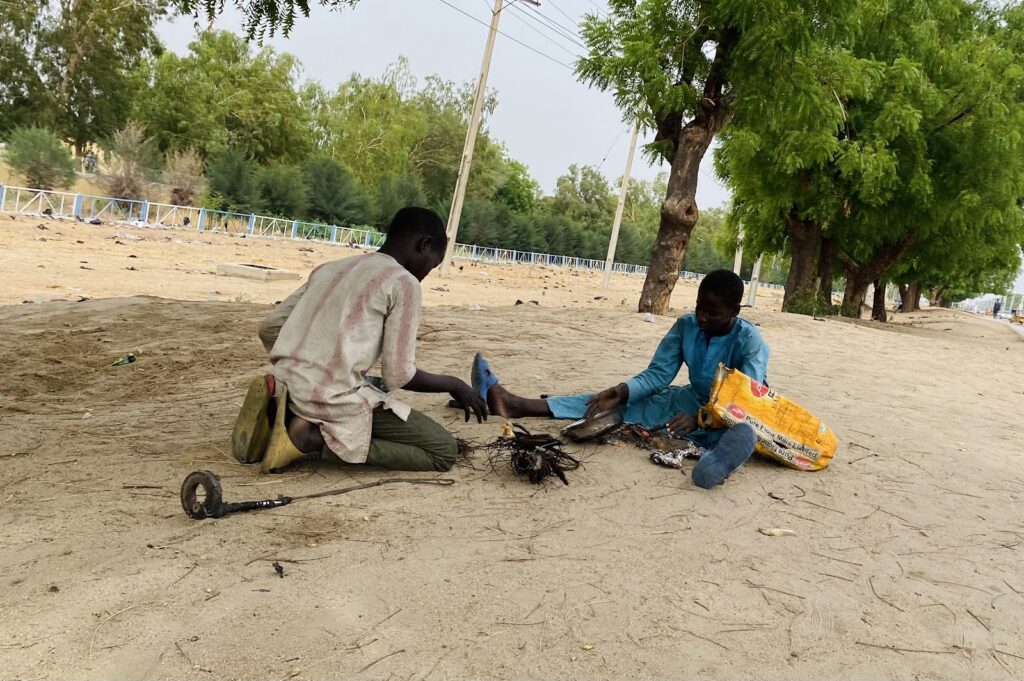
The plight of these vulnerable displaced children surviving on dumpsites in Borno speaks volumes about the harsh reality of their daily lives. These children, who should be in school, spend their days scavenging on dangerous dumpsites.
HumAngle reports that Internally displaced persons (IDPs) in Borno State, northeast Nigeria, have blamed the non-availability of teachers in schools provided for their children in camps as one of the reasons their idle wards take to the streets.
Abubakar Muktar Abba is a 2023 HumAngle Accountability Fellow from Borno, Nigeria.
Support Our Journalism
There are millions of ordinary people affected by conflict in Africa whose stories are missing in the mainstream media. HumAngle is determined to tell those challenging and under-reported stories, hoping that the people impacted by these conflicts will find the safety and security they deserve.
To ensure that we continue to provide public service coverage, we have a small favour to ask you. We want you to be part of our journalistic endeavour by contributing a token to us.
Your donation will further promote a robust, free, and independent media.
Donate HereStay Closer To The Stories That Matter




